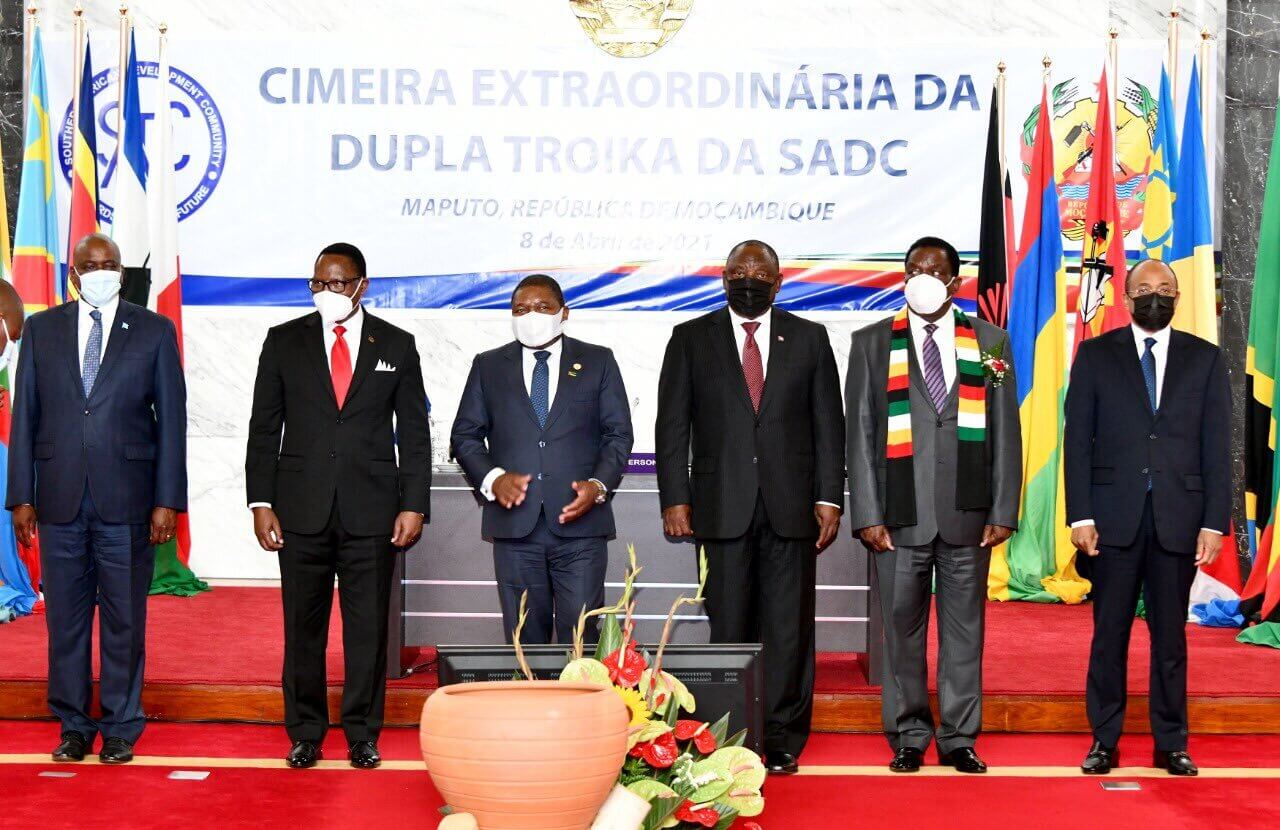Following a heads of state summit of the Southern African Development Community (SADC) in Mozambique’s capital, Maputo, member states announced the launch of a “proportionate regional response” to the Islamist insurgency in Mozambique’s crisis-torn Cabo Delgado region. The meeting was attended by Mozambican President Filipe Nyusi, Malawian President Lazarus Chakwera, Zanzibar President Hussein Ali Mwinyi (who attended the meeting on behalf of Tanzanian President Samia Suluhu Hassan), Botswanan President Mokgweetsi Masisi, Zimbabwean President Emmerson Mnangagwa, and South African President Cyril Ramaphosa.
On Tuesday, the Mozambican military announced that it “regained full control” of the town of Palma—which has a port that is close to a $20 billion liquefied natural gas (LNG) project—after it was taken over by militants who killed dozens and caused the displacement of around 11,000 people on March 24. The attacks forced French energy giant Total to evacuate and withdraw all of its staff from the Afungi region and hand over the construction of its plant to the military. In light of these events, the SADC released a statement saying that “such heinous attacks cannot be allowed to continue without a proportionate regional response.”
Despite regaining control of Palma, vast swathes of the Cabo Delgado province remain under the control of or at least severely besieged by militants. Keeping this continued instability in mind, Mozambican President Nyusi welcomed the announcement by the SADC, saying, “No war is won if it is not clear from the start, (about) what must be done by our country and what must be done by the allies.”
The nature of the SADC’s response remains fairly vague at this stage but the leaders did agree to an “immediate technical deployment” and also agreed to convene an Extraordinary Meeting of the Ministerial Committee of the Organ by 28 April.
The oil and gas-rich province of Cabo Delgado has become a battleground for Islamist groups in the region, who have been linked to both the Islamic State (IS) and Somali terror group al-Shabab. The continued violence has already claimed over 2,600 lives led to the displacement of more than 700,000, many of whom are fleeing to neighbouring countries, including Zimbabwe, Eswatini, South Africa, and Zimbabwe. However, not all countries are so welcoming of these refugees.
In fact, Tanzania reportedly denied entry to a number of Mozambican citizens who arrived at its borders, with the United Nations Refugee Agency (UNHCR) reporting that roughly 600 Mozambican asylum seekers were asked to turn back. Tanzania’s position on the matter has been fairly consistent. Last year, too, it refused entry to 1,000 Mozambicans.
In a separate development, Mozambican President Nyusi announced on Wednesday that his administration will investigate all human rights violations by the Security and Defence Forces (FDS) and take “appropriate measures”. Nyusi argues that the cooperation of civilians is necessary in order to defeat the militants, saying, “No victory will be achieved without complete trust and mutual assistance with the civilian population.”
The SADC’s latest meeting is a tacit acknowledgement that this problem is bigger than just Mozambique, as conflict and internally displaced people (IDPs) could spill over into neighbouring countries, and crucial oil and gas resources could be lost.
SADC to Deliver “Proportionate Regional Response” to Islamist Insurgency in Mozambique
The leaders of Mozambique, Malawi, Tanzania, Botswana, Zimbabwe, and South Africa gathered in Maputo and agreed to deploy a technical mission to Mozambique.
April 9, 2021

SOURCE: PRESIDENCY, SOUTH AFRICA
